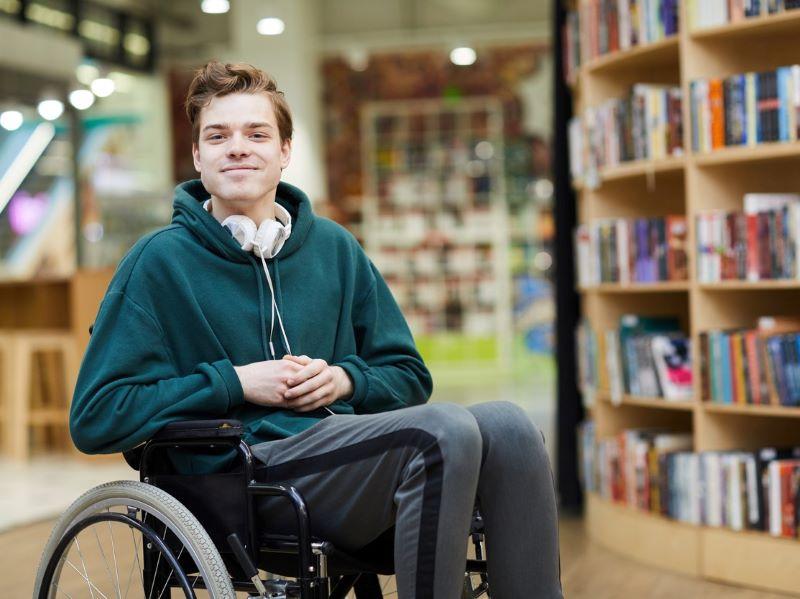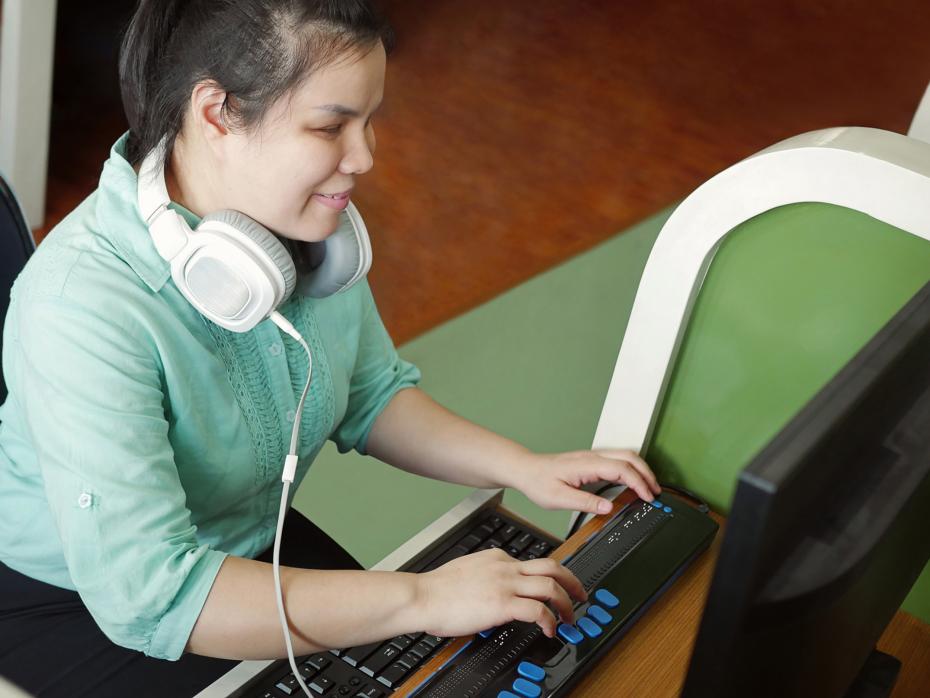
We can help students with intellectual disabilities shatter glass ceilings
With the right approach and a strong institutional commitment, students with intellectual disabilities can thrive at university and in the workplace

You may also like
Popular resources
When Daniel Castellanos was a young child, a psychiatrist predicted that he would “likely never learn to talk, let alone read and write”. Two decades later, Daniel received the Pennsylvania Restaurant & Lodging Association employee of the year award for his work as a prep cook at a popular Lancaster restaurant – beating 20 other nominees from across the state.
Daniel landed the job after completing Millersville University’s integrated studies programme, an inclusive post-secondary initiative for young adults with intellectual disabilities. He even delivered the commencement speech at his graduation ceremony, telling the crowd: “It doesn’t matter what people tell you you can’t do; what matters is that you have hope in your heart.”
Daniel’s story certainly serves as proof of that – and shows what is possible when an institution of higher education takes a truly inclusive approach to enrolment. The question is no longer if students with intellectual disabilities should enrol in higher education but how colleges and universities can shift policy and practice to ensure their success.
- New rules on lecture transcripts give academics an impossible choice
- Making online learning accessible for students with disabilities
- New norms in higher education that can help disabled students long-term
As an educator and researcher who has spent her career designing, implementing and evaluating supports for individuals with disabilities (Meg) and the parent of a child with a disability who has also spent the entirety of her career in education (Ann), we believe that such recognition is not only welcome but long overdue.
Millersville University is one of several institutions that have, over the past decade, used funding from the US Department of Education’s Office of Postsecondary Education to create, expand or enhance inclusive higher education experiences for individuals with intellectual disabilities. These institutions have helped prove that students with intellectual disabilities can not only enrol in and complete higher education programmes but also learn additional skills that lead to strong outcomes in the workforce.
Transition and Postsecondary Programmes for Students with Intellectual Disabilities (TPSID) are leveraging the principles of universal design to create inclusive learning environments for their students. The programmes apply these principles to meet the needs of learners with intellectual disabilities through course design as well as providing learning accommodations. It’s an approach that aims to make learning accessible to all students. Importantly, this means that learners with intellectual disabilities are not siloed in separate special education programmes but integrated into all aspects of the university.
The courses students take in the programme are fully integrated, meaning they include students with and without intellectual disabilities. These institutions ensure that students have the support they need to thrive in all aspects of the college experience by providing peer mentoring services offering social, academic and employment support. Faculty and staff at institutions with these inclusive programmes are especially attuned to the accessibility needs of their students. They incorporate flexibility into their courses and encourage students to advocate for themselves.
Evidence of impact on employment is promising, both during and after programme enrolment. Incoming students often have little work experience – 57 per cent of the students who were employed while enrolled in their TPSID programme had never previously held a paid job. Nearly 60 per cent of respondents to an outcome survey reported having landed a paid job one year after completing a TPSID programme. Two years out, 66 per cent of respondents reported having a paid job. This is significant considering that just a third of all adults with intellectual disabilities find work.
Plus, institutions are finding that these efforts help all their students, not just those with intellectual disabilities. As one instructor put it: “Access needs are something that all students have.” This inclusive mindset reaches beyond the classroom, with students being included in all facets of university life.
More than 6,000 students with intellectual disabilities have enrolled in higher education throughout the US. Like their college counterparts without intellectual disabilities, the education goals of these students are wide-ranging. Some pursue college coursework, for audit or credit, to expand their understanding in a particular field or subject, while many others tie their academic pursuits with their career goals, taking coursework and participating in internships to support their long-term plan.
For example, a student at Eastern Tennessee State University was interested in security work. He took courses in criminal justice to gain knowledge and skills concerning this career and shadowed a school resource officer to better understand the applied aspects of security work. The student learned how patrols are conducted and the importance of building a rapport with those in the community being served.
The connection between access to higher education and long-term employment outcomes are strong. People with intellectual disability who experience post-secondary education are more likely to be employed and earn higher wages than those who do not.
Higher education continues to grow in its capacity to be responsive to the needs of diverse and, in some cases, non-traditional learners. Through strategic planning, many universities are tackling how to better address equity and diversity for their enrolled students. Including students with disabilities in those efforts can produce meaningful changes in access and success for all students with disabilities, including those with intellectual disabilities.
To achieve the best outcomes, colleges and universities should start by offering existing services and support to all students rather than creating separate systems, structures or classes for students with intellectual disabilities. Institutional leaders can start by asking: “What do we offer to other learners, and how can it be expanded to meet the needs of these students?”
Higher education has created a path to a better future for generations of learners, raising their academic capacity, preparing them for careers and cultivating their potential to lead more successful adult lives. Individuals with intellectual disabilities should be provided with the same opportunities to strive and succeed as any other student. Creating responsive, sustainable and inclusive pathways into and through higher education is not only possible, it is happening. And we are all better off because of it.
Meg Grigal is senior research fellow at the Institute on Community Inclusion at University of Massachusetts Boston.
Ann Werbach is campus director at InsideTrack.


